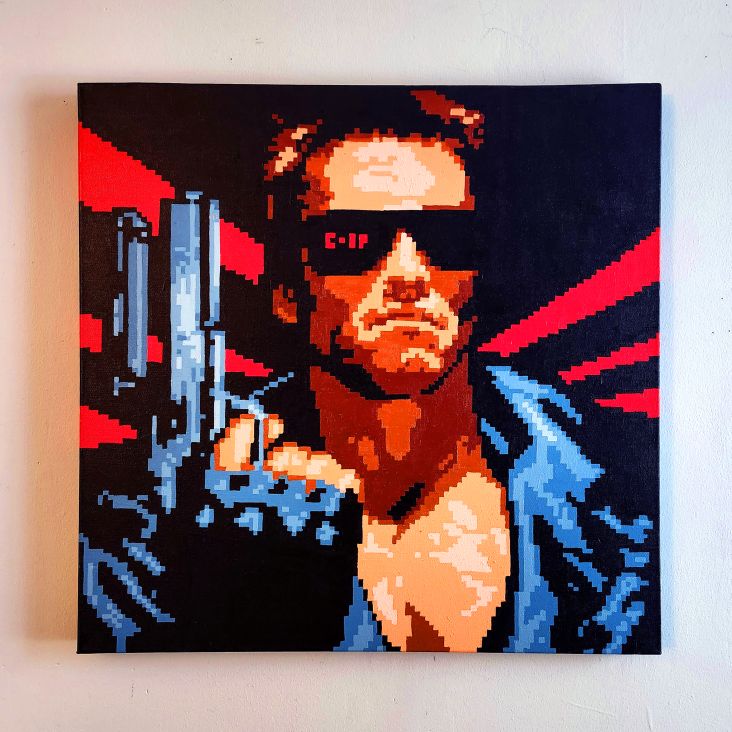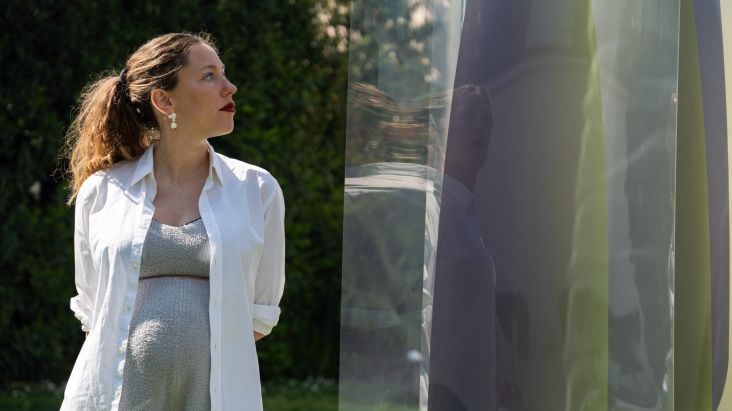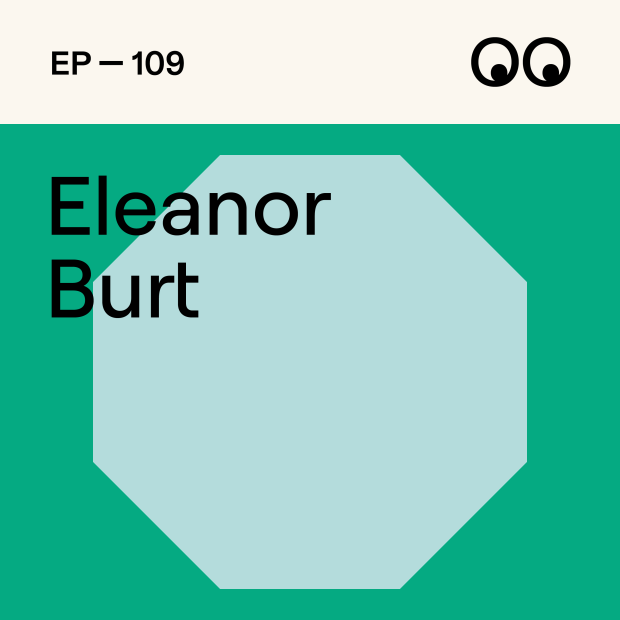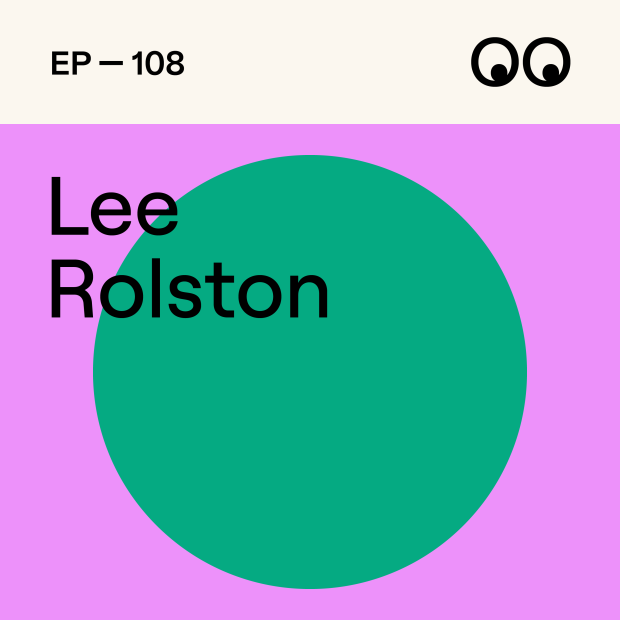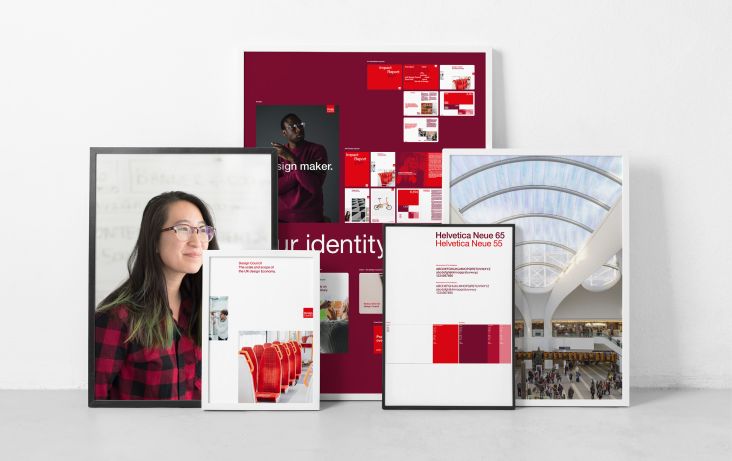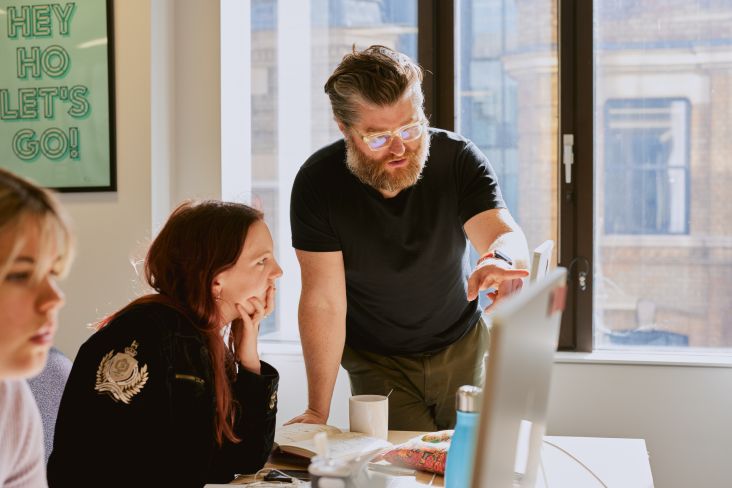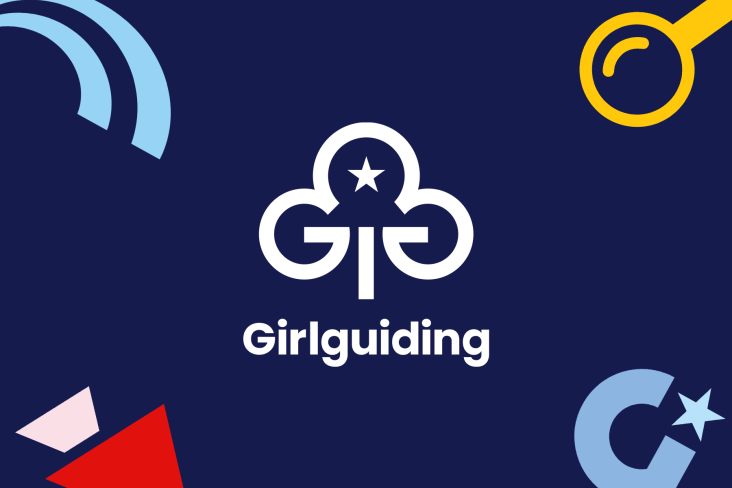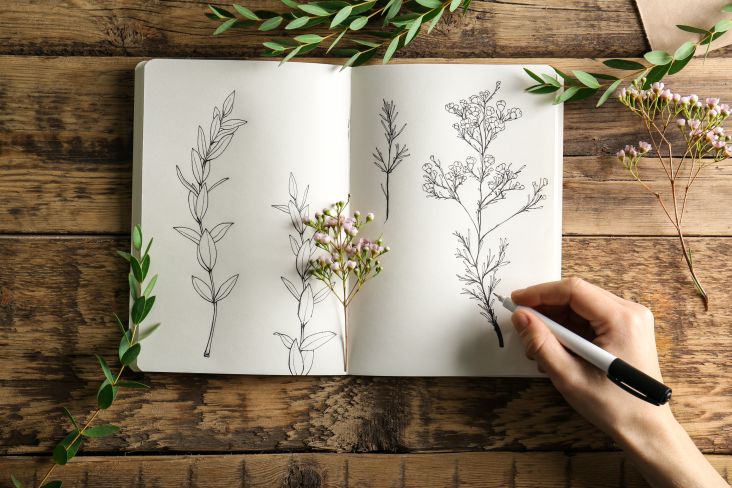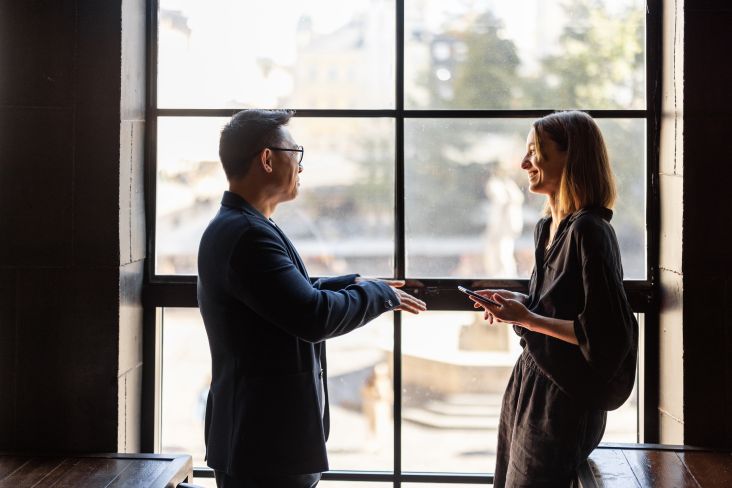'Start Yesterday': 7 female founders share their tips for success in the creative industry
In honour of International Women's Day, Creative Boom invited female founders from seven creative agencies across the US and UK to share their experiences and advice on what it takes to build an agency from the ground up.

Image licensed via Adobe Stock
Every creative founder's experience is different, but these seven women have at least one thing in common: they all had a creative ambition they couldn't shake off and wanted to find a way to have autonomy over their own creative and working lives.
Their founder journeys have been directed by their intentional desire to make a mark – not just by leaving a creative legacy behind but by living meaningful lives as leaders, but also, more simply and universally, as people.
Their advice applies not only to aspiring founders but to any creative looking to work in a more meaningful way. Here's what they had to say.
Design the life you want to lead
Katie Klencheski founded the NYC-based creative agency SMAKK in 2011 to give herself more creative freedom. She told Creative Boom: "I loved the strategy side of branding even though I was a 'creative' and wanted to establish an agency where I could choose my own projects, dig into strategy, then execute in a more 360 way." Over the last decade, SMAKK has evolved under Klencheski's vision, and leadership – and so has her idea of what it means to be a founder.
"I've always felt grateful as a founder that I can control my destiny," Klencheski said. "But it's only in the past five or so years that I've realised the real power in having my own agency is that it allows me to design a life I love. Increasingly, that has meant a greater focus on making wellbeing a bigger part of everything we do – from the value we bring to clients to how we support our team."
Klencheski also shared an important reminder she often tells her team: "Everyone here is super talented. We can choose to work anywhere. If we aren't actively creating a workplace we love, it's not worth it." SMAKK's mission, Klencheski said, is to "embrace wellbeing in our work and in the culture we create. It's not just about building an agency that allows the amazing people at SMAKK to do their best creative work for brands they believe in, but also to give them work/life balance and support to pursue things outside work that will make them happy.
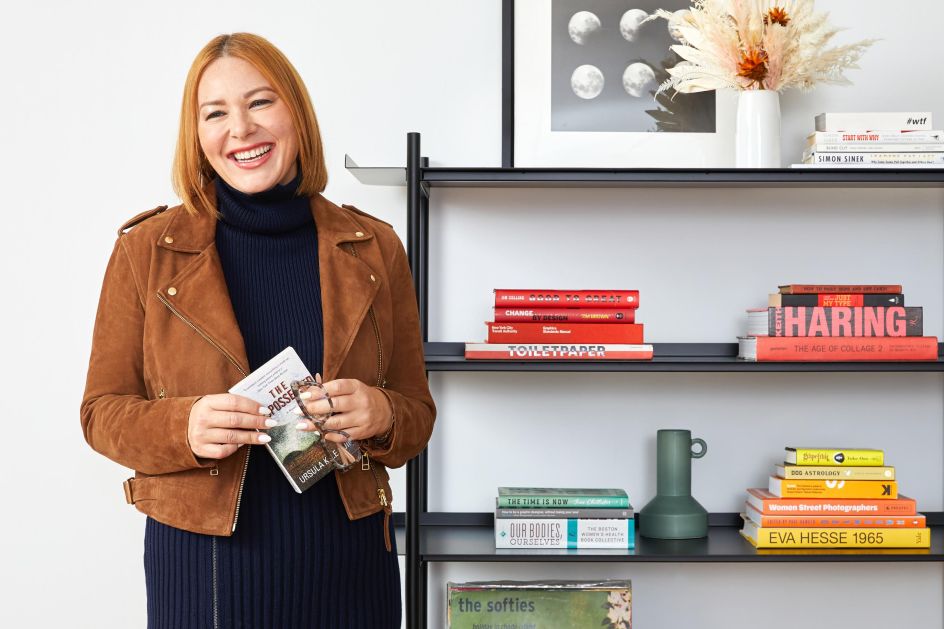
Katie Klencheski founded the NYC-based creative agency SMAKK
Big creative vision is important to success as a founder, but so too is business acumen and sweating the small stuff. Klencheski advised aspiring founders to get comfortable managing finances. She shared her own experience with Creative Boom: "For years, I would say, 'I went to art school. It's not fair that I have to do spreadsheets'. Client services work is different from running a startup or an investment-backed business; honestly, it took a long time to learn how to measure and manage. But after I took it on, I've realised that knowing the nuances of our profitability, managing cash flow, long-term planning for the right growth for our agency, and keeping a healthy P&L is a superpower."
Start yesterday
Cat How has been founding and running her own businesses since her student days – from selling hand-made jewellery at Brick Lane markets to a design and illustration shop to co-working spaces catering to creatives. Most recently, she co-founded the global design and brand shop How&How, which she calls a distillation of all her past pursuits and experiences she has picked up along the way.
"It was a way of using business knowledge, a love of design (from when I worked in design agencies) and a love of finding a true and original story to tell (a passion from when I worked as a journalist)." But How admitted that it didn't feel easy just because she was highly qualified to found a business: "I was pretty scared of taking the leap at the beginning – I think mostly because of all the things I felt I couldn't do, so like huge imposter syndrome! But now, looking back, I can't think of anything else I'd rather do. I bloody love it."
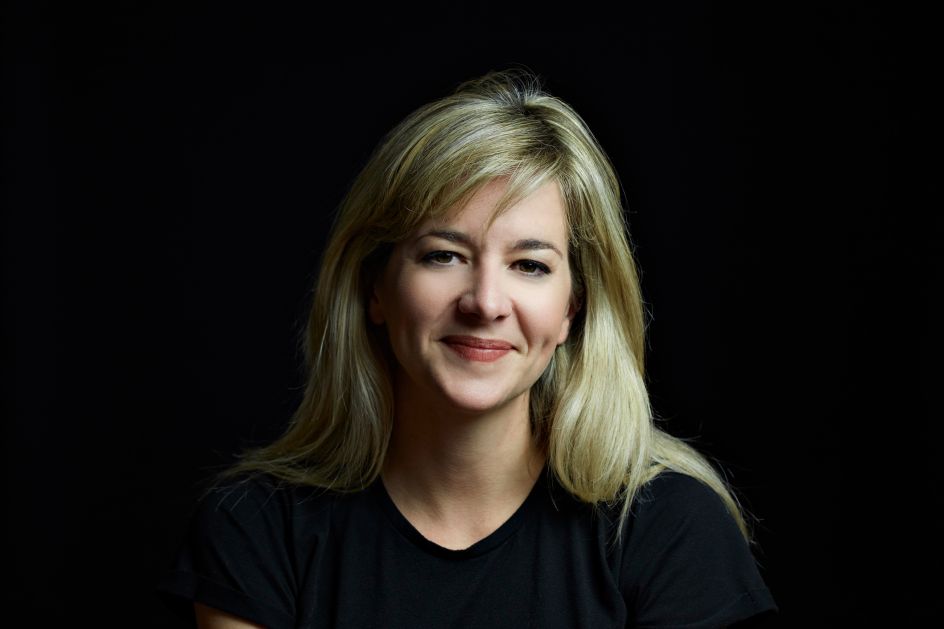
Cat How of How&How
Given how much she loves her work, it's no surprise that How's top advice for aspiring female founders today is to waste no time and dive right in. "There's never a good time to set up an agency. So the best thing to do is to start yesterday," she said.
Still, starting now doesn't mean doing everything at once. Reflecting on her own experience building a business so far, How shared that she'd like to encourage her past self to take more time in some aspects of her founder journey to build up slowly. "I tend to want to move very fast and break things, and sometimes playing the long game – growing a team slowly, waiting for our reputation to grow, not wanting everything to happen at once – is probably a better business strategy at the beginning."
Don't lose sight of your goals
Pum Lefebure grew up in Thailand and identified as an artist early on. "I loved the freedom to express myself creatively through art and design." She followed a university scholarship to the USA, then stuck around for a full-time job in Washington, DC, but her creative, entrepreneurial spirit never faded. "I was always inspired to create my own business," Lefebure told Creative Boom. "It was that passion for creativity and self-expression that drove me to turn my dreams into reality, starting Design Army at my kitchen table and growing it to a top-tier creative firm."
She said there's no real secret to founder success – just the crucial grit it takes to start and keep going. She continued: "There is no way around it – you must work your ass off to succeed... Your dreams won't materialise if you don't put yourself out there. And although sometimes you fail in life, failure is part of success. I believe the American Dream is still alive and well – I am proof."
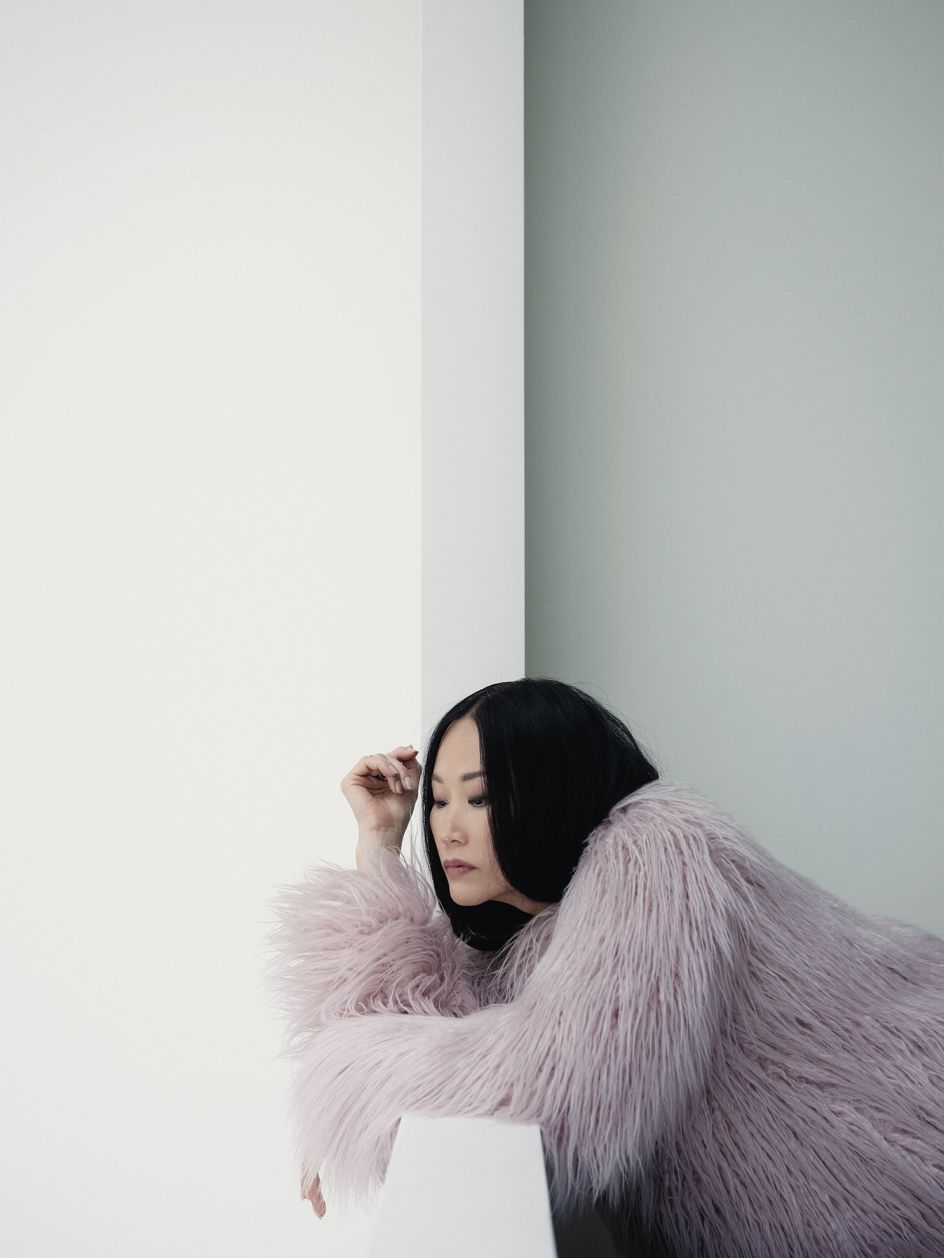
Pum Lefebure of Design Army. Photo by Wenjun Liang
Her biggest advice to creatives like her who want to strike out as founders is to balance a future-facing curiosity with a clear, solid vision. "Trends come and go, design aesthetics change, media platforms change, clients change. As a leader, you must stay ahead of the curve," she said. "By necessity, I've learned the art of trend forecasting to prepare myself and my team for what's to come. It's essential to never lose sight of the goal and always set aside some time to experiment – even if it means taking risks! To truly progress, you must continuously rethink everything, challenge conventions and explore the unknown – always question tomorrow and embrace change."
For young women on their own founder journey, Lefebure has further advice: "Do not try to imitate 'male' leadership, as you have far greater potential to make use of your emotional intelligence – caring is the core of great leadership. Take advice from female leaders who have succeeded before you and use that insight to lead confidently and powerfully. Stay smart, be bold, and challenge yourself – Game On!"
Don't take anything too seriously
"One thing we've been historically denied as women is autonomy, agency, and choice – co-founding a business has helped to accelerate my freedom to make decisions that impact the industry, both within and beyond the remit of my expertise in digital design," Sara Taiyo, the co-founder of Brighton-based agency Driftime Media told Creative Boom.
Taiyo shared that during her 12 years in an agency setting, she became disillusioned with work that didn't align with her values and vision. The allure and novelty of the security, structure, and excitement found in agency work eventually wore off, leading her to explore pastures new as the founder of her own venture. "Over the past six years, both myself and the business have matured, becoming sturdier with time and more established with experience," Taiyo said.
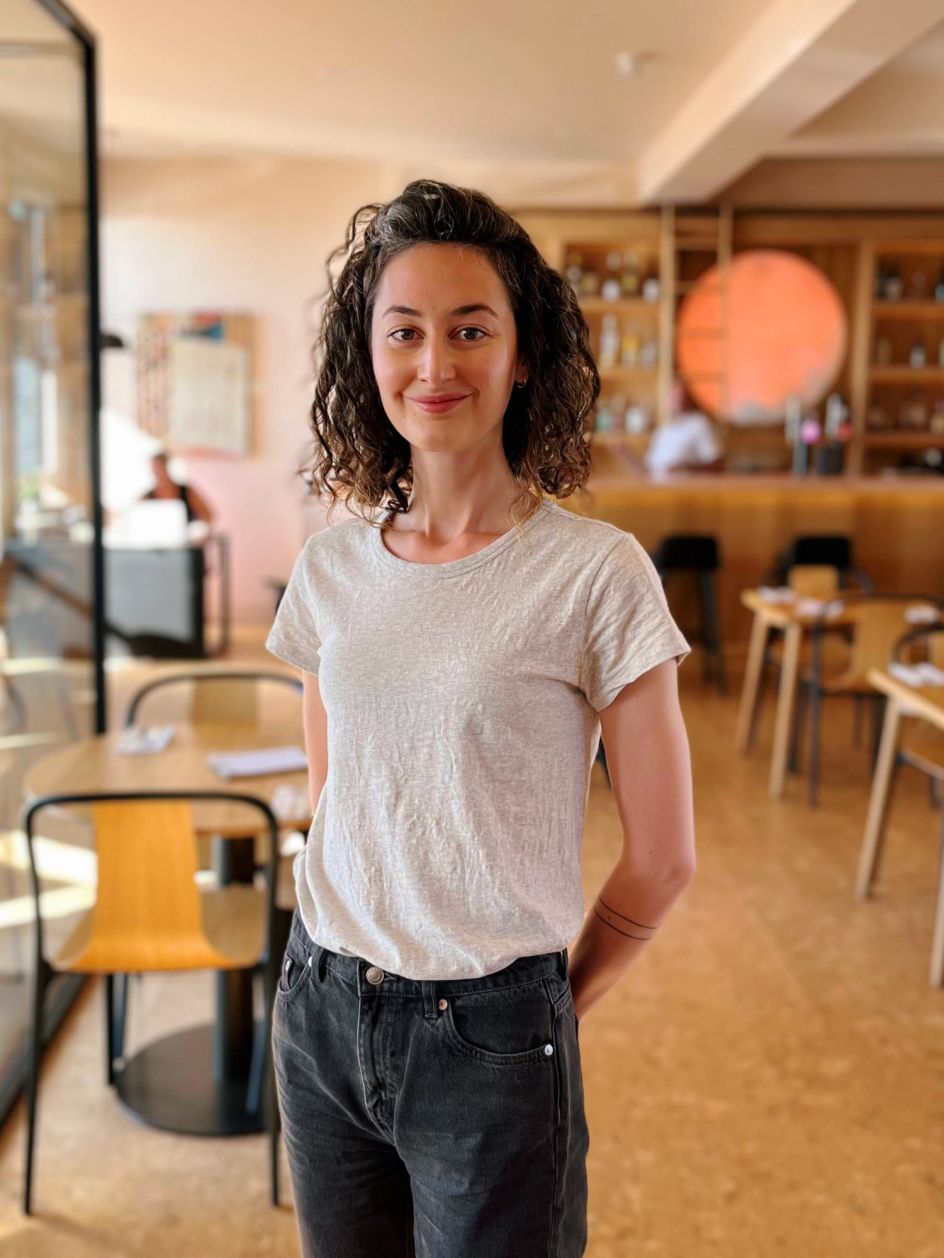
Sara Taiyo, the co-founder of Brighton-based agency Driftime Media
She wholeheartedly believes business should be joyful and advocates for a company culture that fosters positivity and encourages free-form development. Her most prescient advice for aspiring founders who share a similar value set is "to not take anything too seriously – exploration, experimentation, and iteration are at the bedrock of any good business, and something we can champion as a woman-led community."
Keep asking questions
Sara Jones had been working in the design industry for over 15 years when she decided to make a change in 2011. "I was ready to take responsibility and put my experience gained into practice," she told Creative Boom. "Co-founding Free The Birds felt like the natural next step."
Jones shared that founding a creative agency expanded her life in ways she couldn't have imagined. "You never stop learning," she said. "From the people you meet, the places you go and the opportunities that present themselves. You're also exposed to many experiences that can be drawn on to share and help others."

Sara Jones of Free The Birds
Reflecting on the advice she might have given herself at the beginning of her founder journey, Jones added: "One thing I would tell my younger self would be to take time to understand what motivates those around you – it might not be what you thought! Also, don't try to second guess what anyone thinks; you'll never truly know. Finally, don't be afraid to speak up; your view is just as valid as others."
But Jones also advises balancing confidence with curiosity: "You don't always have to know everything – keep asking the questions, seek out experts that you can learn from, keep the conversation going."
Follow your passion
Morrama founder Jo Barnard first entertained the idea of starting her own agency as a student, "most likely fueled by a mix of ego, naivety, and self-belief that I would be good at it," she told Creative Boom.
That self-belief served her well in the end – running an agency turned out to be her true calling. "Founding a creative firm has enriched my life in so many ways. I've learned so much about myself and how resilient I can be in difficult situations, but mostly it's the team around me that brings the most joy and purpose to my day-to-day life. Knowing I've brought each of them into Morrama and seeing what we can achieve together is incredibly fulfilling."
Still, after eight years of running her own business, she's surprised to find herself viewed as a role model. "That always catches me out. When people come up to me and say that they've been following my journey and are inspired by it, it means a lot."
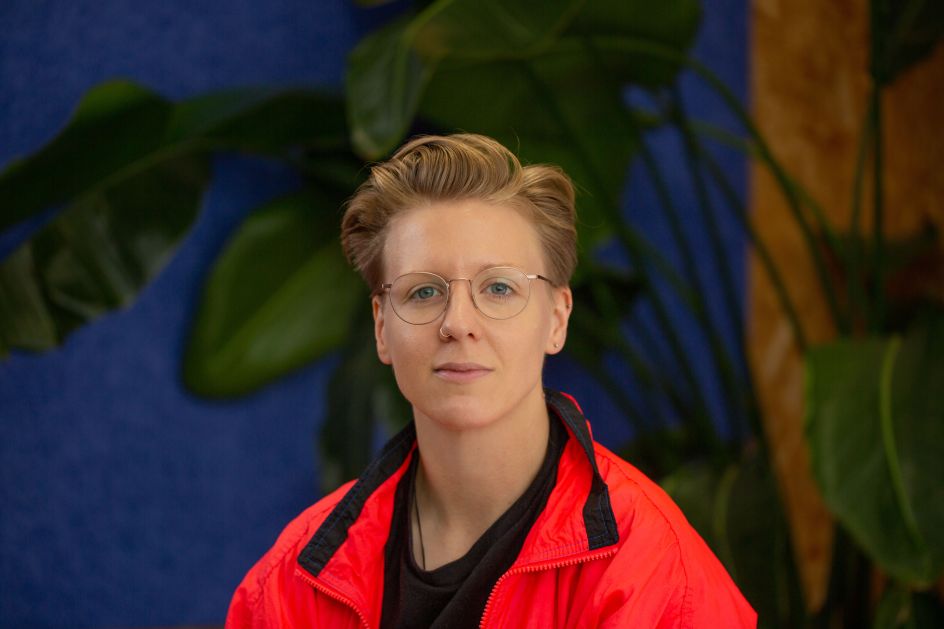
Jo Barnard of Morrama
The novelty of being seen as a role model may have something to do with Barnard's struggle with confidence. Despite the early bravado of her student years, Barnard said that "Imposter syndrome is 100% a challenge I've had to overcome in this journey. As a female in my mid-twenties, if you were to look around the rest of the industry, I had no right to be leading a design agency. Only in the past year have I come to appreciate how much I've learnt, how much experience my team and I have and what that is worth."
Ultimately, she credits her passion for helping her build strong foundations for her business. To aspiring founders, she offered this advice: "You need a combination of passion, expertise and market fit to succeed. If the passion is there, it will bring the energy needed to keep you in the game long enough to build expertise. That leaves market fit; understanding what your clients really need and working out what makes you the best person to deliver it is key."
Trust yourself
Amy Globus, a co-founder of the Brooklyn-based agency Team, started as a visual artist and has always considered her willingness to experiment a strength when it comes to her art and her business. "I have always been very self-directed," Globus told Creative Boom. "Before starting my design studio with my co-founder John, I didn't have a specific medium that I worked in, so I learned every skill that I needed to make any idea a reality – whether it be paper mache or sound mixing, or even raising octopi. I loved to learn about everything that drove my curiosity at that moment."
Upon entering the workforce as a creative, Globus realised she missed the experimentation and freedom that she had as a visual artist. "That's what I wanted my studio to be about – figuring out the best path to ensure the work is as good as it can be and reimagining how we'll approach it."
Globus told Creative Boom that founding a design studio allowed her to take on large creative challenges, further perpetuating the open-minded curiosity she cultivated as an artist. Team's client list is industry agnostic, ranging from household names like Pfizer and Red Bull to cultural institutions like The Bronx Museum to the recently launched cannabis brand, Mixtape.
"Over the years, it's become clear whether I'm working with industry leaders, cultural institutions, or startups finding their feet, inspiration can come from unlikely places. It's inspiring to learn from experts in many fields and cross-pollinate ideas across projects," Globus said.
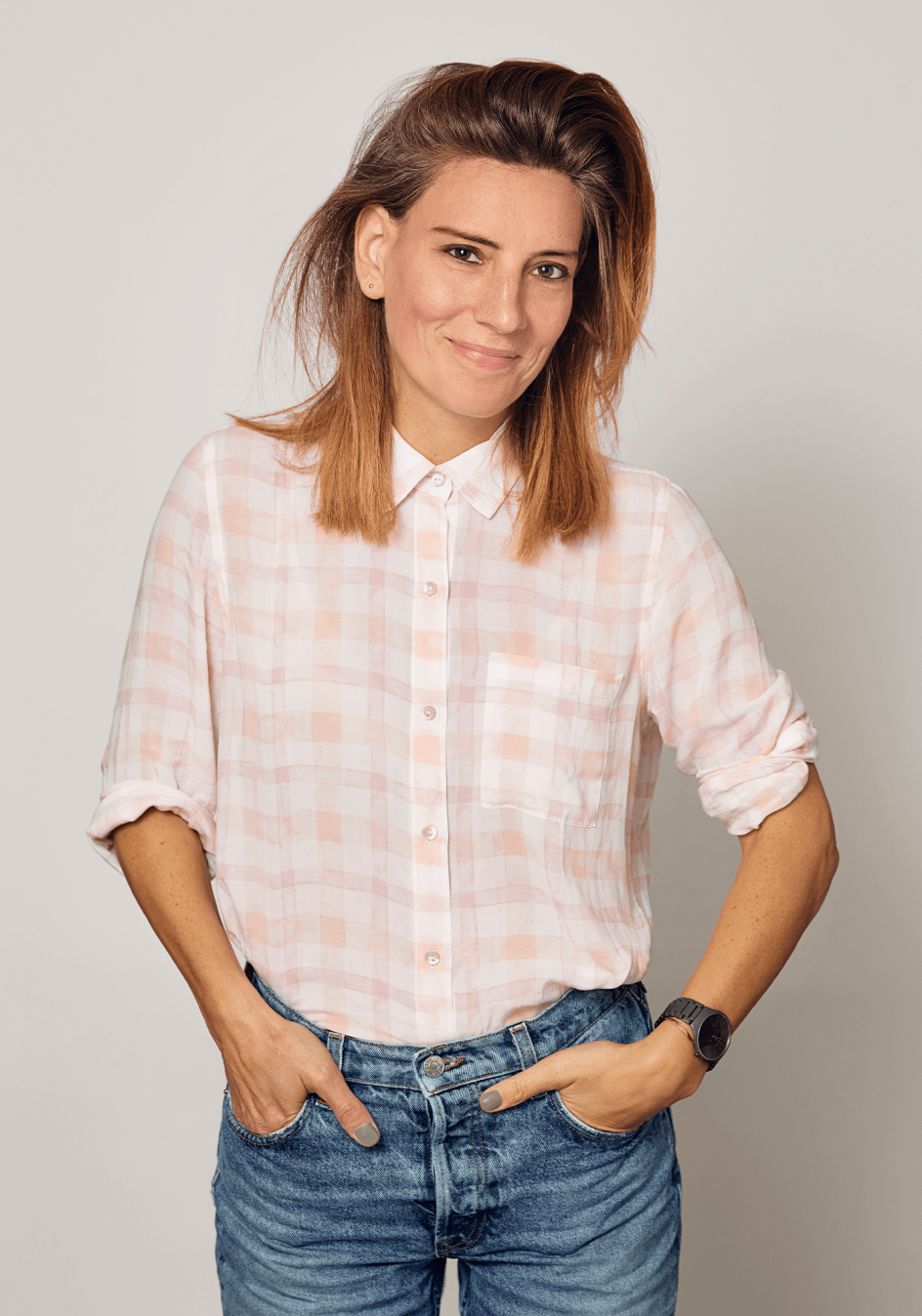
Amy Globus, co-founder & creative director at Team
But her wide-ranging creative experience and interest are tempered by an appreciation for the small things – an attitude she says took time to develop.
Globus continued: "When starting your business, it's easy to feel like an imposter. As a woman, it's even harder to be taken seriously. In the early days of my practice, it was just me and my co-founder, John. When meeting with potential clients from these large companies, I often felt like I had to overcompensate for our size to get the work I wanted."
But Globus said that size doesn't necessarily matter as much as it seems when you're first starting out. "Even in the largest agency, you'll find a small team dedicated to the project," she observed, adding: "'Small' has its benefits."
She offered some advice she wished she could have given herself in the early days of starting Team: "I would say to be confident in my own skills that got me to this point and to trust myself. Oftentimes, as women, we're taught to spread recognition to others, not to claim it for ourselves. So, in my younger years, I would've embraced where I was and been reassured of my achievements and capabilities. Work hard and do great work – that's all you need."
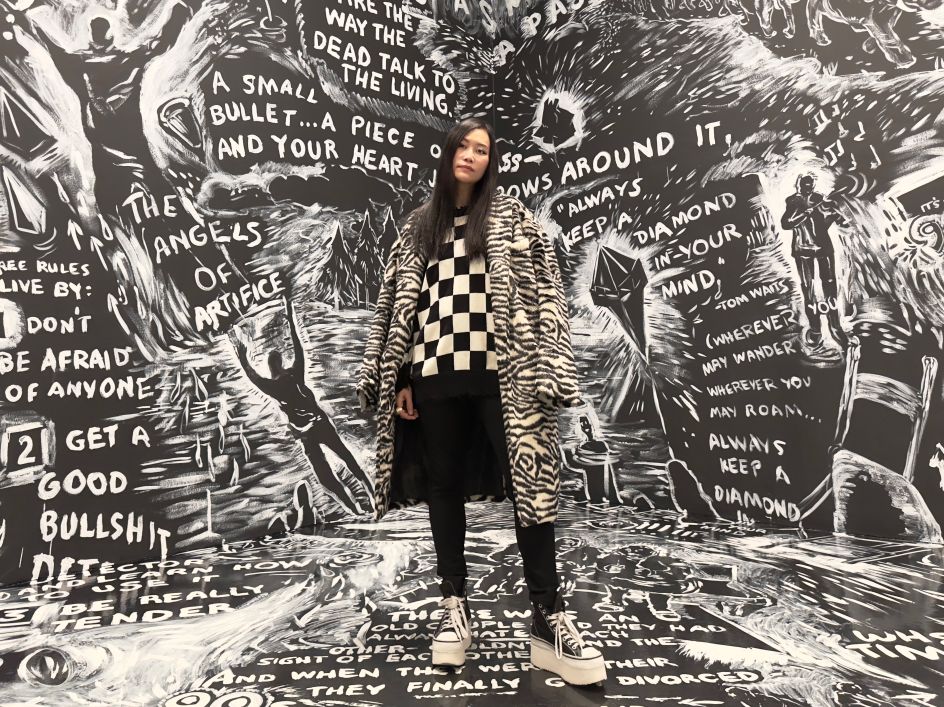
Pum Lefebure
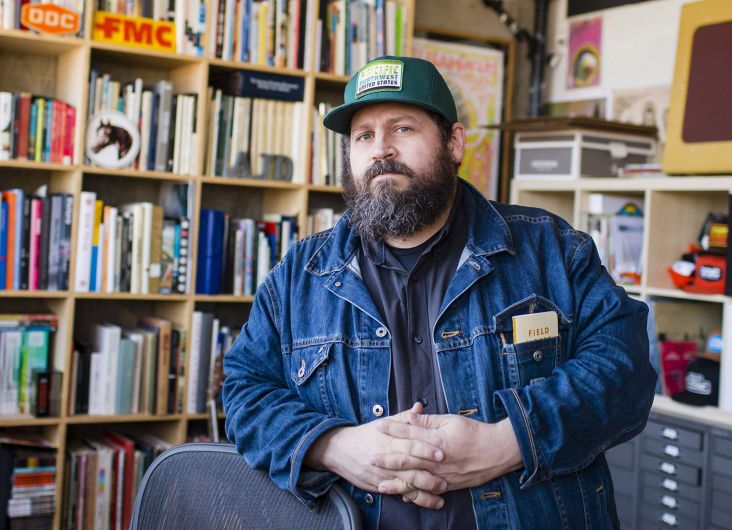


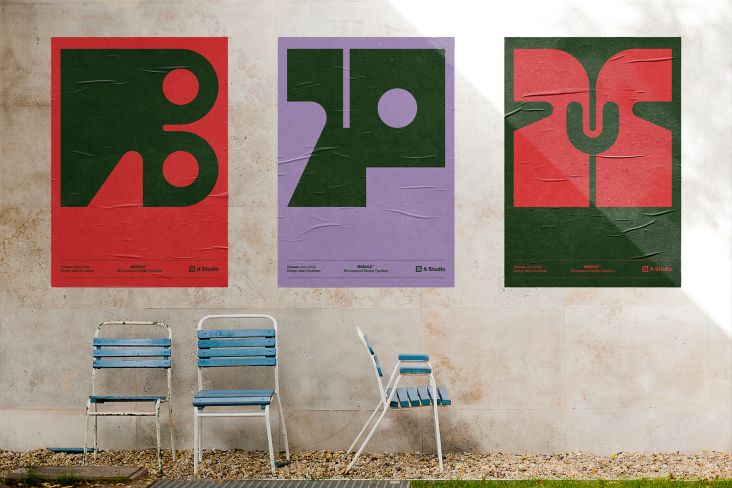
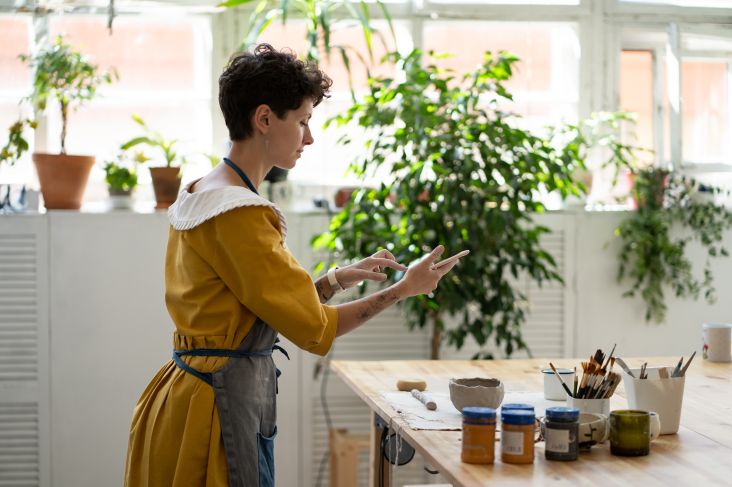
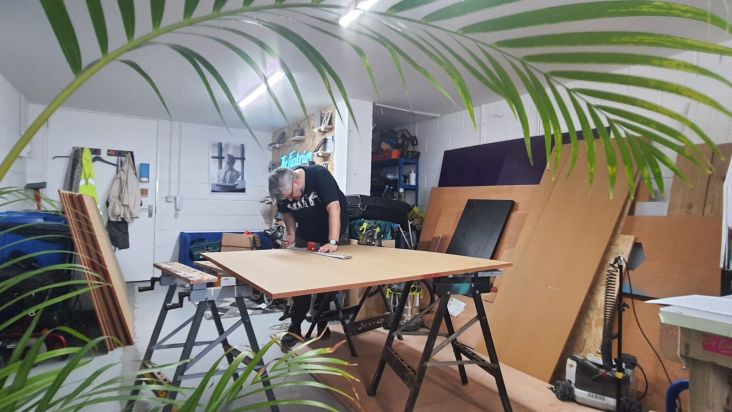
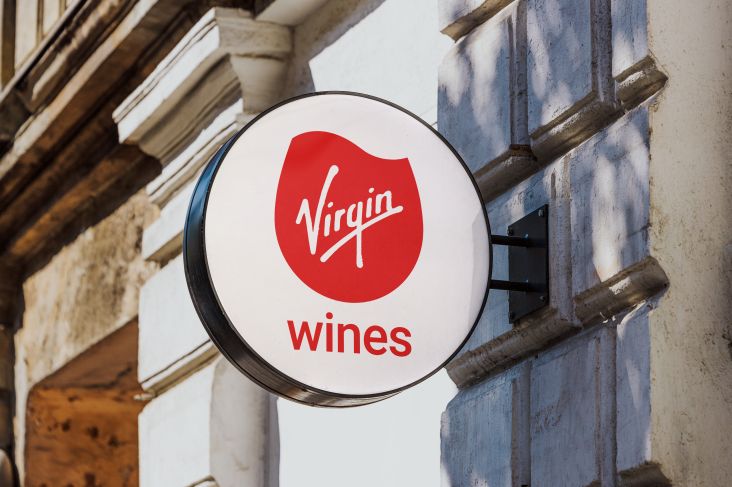
](https://www.creativeboom.com/upload/articles/86/862919952c0ad18439004228895a431dc6e45ffc_732.jpg)
